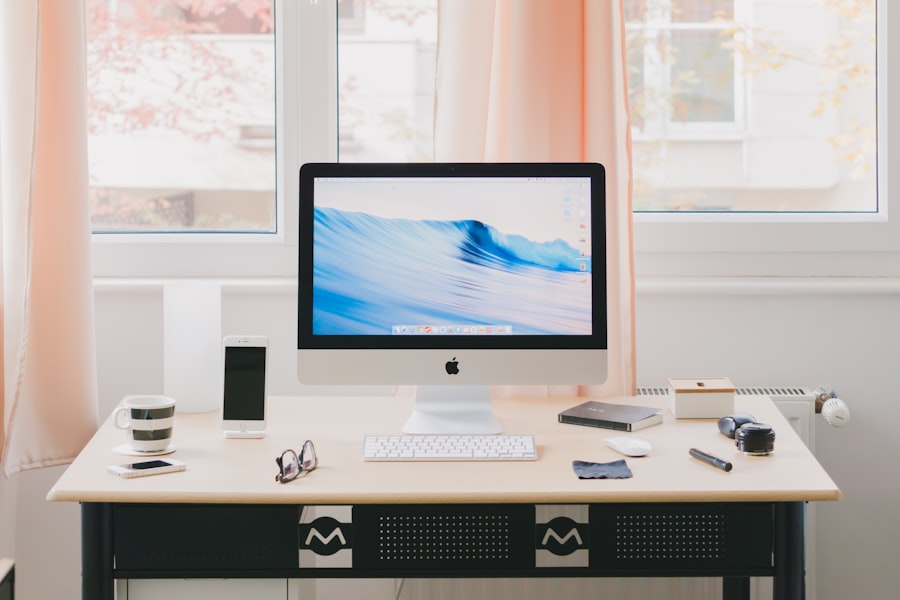Freelancing has become an increasingly popular career choice for individuals seeking greater flexibility and autonomy in their work. However, this freedom presents challenges in maintaining a healthy work-life balance. Freelancers often find themselves working extended hours, experiencing burnout, and struggling to disconnect from work.
Achieving an appropriate balance between professional and personal life is crucial for overall well-being and productivity. Freelancers face unique challenges in managing work-life balance due to their responsibility for self-managing time and workload. Without the structure of traditional employment, there is a risk of overcommitting and taking on unsustainable amounts of work.
This can result in increased stress, decreased productivity, and a reduced quality of life. To address these challenges, freelancers can implement various strategies and techniques. These include setting clear boundaries between work and personal time, prioritizing tasks effectively, creating and adhering to a structured schedule, and incorporating regular self-care activities.
By adopting these practices, freelancers can achieve a healthier balance between their professional and personal lives, leading to improved overall well-being and sustained success in their careers.
Key Takeaways
- Freelance work-life balance is essential for maintaining mental and physical well-being while working independently.
- Setting boundaries and prioritizing tasks is crucial for managing time and avoiding burnout as a freelancer.
- Creating a schedule and sticking to it helps freelancers stay organized and productive in their work.
- Utilizing time management techniques such as the Pomodoro method can improve efficiency and focus during work hours.
- Incorporating self-care and wellness activities into daily routines is important for maintaining a healthy work-life balance as a freelancer.
- Seeking support and networking with other freelancers can provide valuable insights and resources for improving work-life balance.
- Evaluating and adjusting work-life balance regularly is necessary to adapt to changing work demands and personal needs as a freelancer.
Setting Boundaries and Prioritizing Tasks
One of the most important aspects of maintaining a healthy work-life balance as a freelancer is setting clear boundaries between work and personal time. It’s essential to establish specific working hours and communicate these boundaries to clients and collaborators. This can help prevent the temptation to work around the clock and ensure that freelancers have dedicated time for rest and relaxation.
Additionally, prioritizing tasks is crucial for managing workload effectively. By identifying the most important and time-sensitive tasks, freelancers can focus their energy on completing these tasks first, reducing the risk of feeling overwhelmed by an ever-growing to-do list. Setting boundaries as a freelancer may involve saying no to additional projects when workload is already at capacity, or establishing specific times during the day when work will not be conducted.
This could mean turning off email notifications after a certain hour or designating certain days as “no work” days. Prioritizing tasks involves evaluating the urgency and importance of each task and allocating time and resources accordingly. This may involve using tools such as the Eisenhower Matrix to categorize tasks based on their level of importance and urgency.
By setting boundaries and prioritizing tasks, freelancers can create a more structured and manageable workload, leading to a better work-life balance.
Creating a Schedule and Sticking to It

Creating a schedule is essential for freelancers to maintain a healthy work-life balance. Without a set schedule, it’s easy for work to spill over into personal time, leading to feelings of burnout and resentment. By establishing a daily or weekly schedule that includes dedicated work hours as well as time for personal activities, freelancers can ensure that they are allocating time for both work and leisure.
It’s important to be realistic when creating a schedule and to allow for flexibility when unexpected events arise. Sticking to a schedule can be challenging, especially for freelancers who are used to the freedom of setting their own hours. However, by treating work hours with the same level of commitment as a traditional job, freelancers can create a more balanced approach to their work.
This may involve setting specific start and end times for work, taking regular breaks throughout the day, and avoiding the temptation to work outside of designated hours. By creating and sticking to a schedule, freelancers can establish a sense of routine and predictability in their work, leading to improved work-life balance.
Utilizing Time Management Techniques
Effective time management is crucial for freelancers looking to achieve a better work-life balance. With the freedom to set their own schedules comes the responsibility of managing time efficiently in order to meet deadlines and maintain productivity. There are various time management techniques that freelancers can utilize to improve their efficiency and create more time for personal activities.
One such technique is the Pomodoro Technique, which involves working in focused intervals (typically 25 minutes) followed by short breaks. This method can help freelancers maintain focus and avoid burnout by breaking up the workday into manageable segments. Another useful time management technique is the use of task lists or productivity apps to track and prioritize tasks.
By creating a list of daily or weekly tasks and assigning deadlines to each task, freelancers can stay organized and ensure that important deadlines are met. Additionally, utilizing time tracking tools can help freelancers gain insight into how they are spending their time and identify areas where productivity can be improved. By implementing these time management techniques, freelancers can optimize their workflow, reduce procrastination, and create more time for leisure activities outside of work.
Incorporating Self-Care and Wellness Activities
In the fast-paced world of freelancing, it’s easy for self-care and wellness activities to fall by the wayside. However, prioritizing self-care is essential for maintaining a healthy work-life balance. Incorporating regular exercise, mindfulness practices, and leisure activities into daily routines can help freelancers manage stress, improve mental well-being, and prevent burnout.
Whether it’s taking a short walk outside, practicing yoga, or engaging in a hobby, finding time for self-care activities is crucial for overall health and happiness. In addition to physical self-care activities, it’s important for freelancers to prioritize mental well-being as well. This may involve setting aside time for meditation or mindfulness practices, seeking therapy or counseling when needed, or simply taking regular breaks throughout the workday to rest and recharge.
By incorporating self-care and wellness activities into daily routines, freelancers can improve their overall quality of life and achieve a better balance between work and personal responsibilities.
Seeking Support and Networking with Other Freelancers

Freelancing can often feel isolating, especially for those who work from home or have limited interaction with colleagues. Seeking support from other freelancers can provide valuable insight, encouragement, and a sense of community that can help combat feelings of isolation and burnout. Networking with other freelancers through online forums, social media groups, or local meetups can provide opportunities for collaboration, mentorship, and friendship.
By connecting with others who understand the unique challenges of freelancing, individuals can gain support and perspective that can help them navigate the ups and downs of freelance life. In addition to seeking support from other freelancers, it’s important for individuals to communicate openly with friends and family about their work-life balance needs. This may involve setting boundaries with loved ones regarding work interruptions during designated work hours or seeking help with household responsibilities in order to create more time for personal activities.
By building a support network of both fellow freelancers and loved ones, individuals can feel more connected, understood, and supported in their pursuit of a healthy work-life balance.
Evaluating and Adjusting Your Work-Life Balance regularly
Achieving a healthy work-life balance is an ongoing process that requires regular evaluation and adjustment. As freelancers’ workload, priorities, and personal circumstances change over time, it’s important to regularly assess how well they are managing their time and energy. This may involve reflecting on current habits and routines, identifying areas where improvements can be made, and making necessary adjustments to create a more balanced approach to work.
One way to evaluate work-life balance is by periodically assessing how much time is being allocated to work versus personal activities. If it becomes clear that work is consistently encroaching on personal time or causing excessive stress, it may be necessary to reevaluate priorities and make changes to create a healthier balance. Additionally, seeking feedback from loved ones or colleagues about how well they perceive individuals are managing their work-life balance can provide valuable insight into areas that may need improvement.
In conclusion, achieving a healthy work-life balance as a freelancer requires intentional effort and commitment. By setting boundaries, prioritizing tasks, creating a schedule, utilizing time management techniques, incorporating self-care activities, seeking support from others, and regularly evaluating one’s approach to work-life balance, freelancers can create a more sustainable and fulfilling career while also enjoying a rich personal life. With the right strategies in place, freelancers can thrive in both their professional endeavors and personal well-being.
If you’re a freelancer looking to maximize your productivity and work-life balance, you may also be interested in learning about the top 7 reasons why you need software for employee monitoring. This article discusses the benefits of using software to track employee productivity and time management, which can be helpful for freelancers looking to stay organized and efficient in their work. Check out the article here.
FAQs
What is work-life balance?
Work-life balance refers to the equilibrium between the time and effort spent on work and personal life. It involves managing responsibilities at work and at home in a way that allows individuals to prioritize their well-being and happiness.
Why is work-life balance important for freelance workers?
Freelance workers often have flexible schedules and work from home, which can blur the boundaries between work and personal life. Maintaining a healthy work-life balance is crucial for preventing burnout, reducing stress, and improving overall well-being.
What are some tips for achieving work-life balance as a freelance worker?
Some tips for achieving work-life balance as a freelance worker include setting boundaries, creating a dedicated workspace, establishing a routine, taking regular breaks, and prioritizing self-care and leisure activities.
How can freelance workers manage their time effectively to improve work-life balance?
Freelance workers can manage their time effectively by setting clear goals, prioritizing tasks, using time management tools, avoiding multitasking, and establishing a daily or weekly schedule.
What are the potential consequences of not maintaining a healthy work-life balance as a freelance worker?
Not maintaining a healthy work-life balance as a freelance worker can lead to burnout, increased stress, decreased productivity, strained personal relationships, and negative impacts on physical and mental health.



